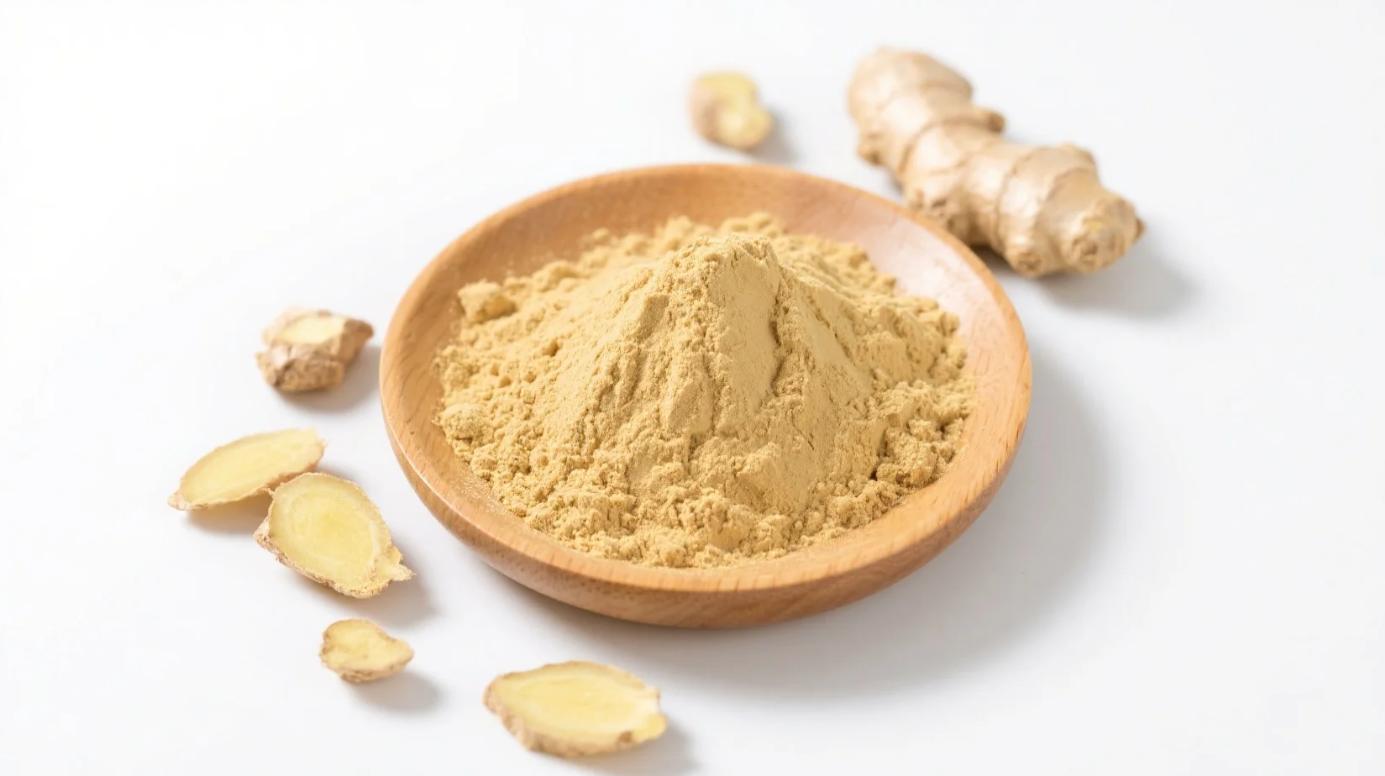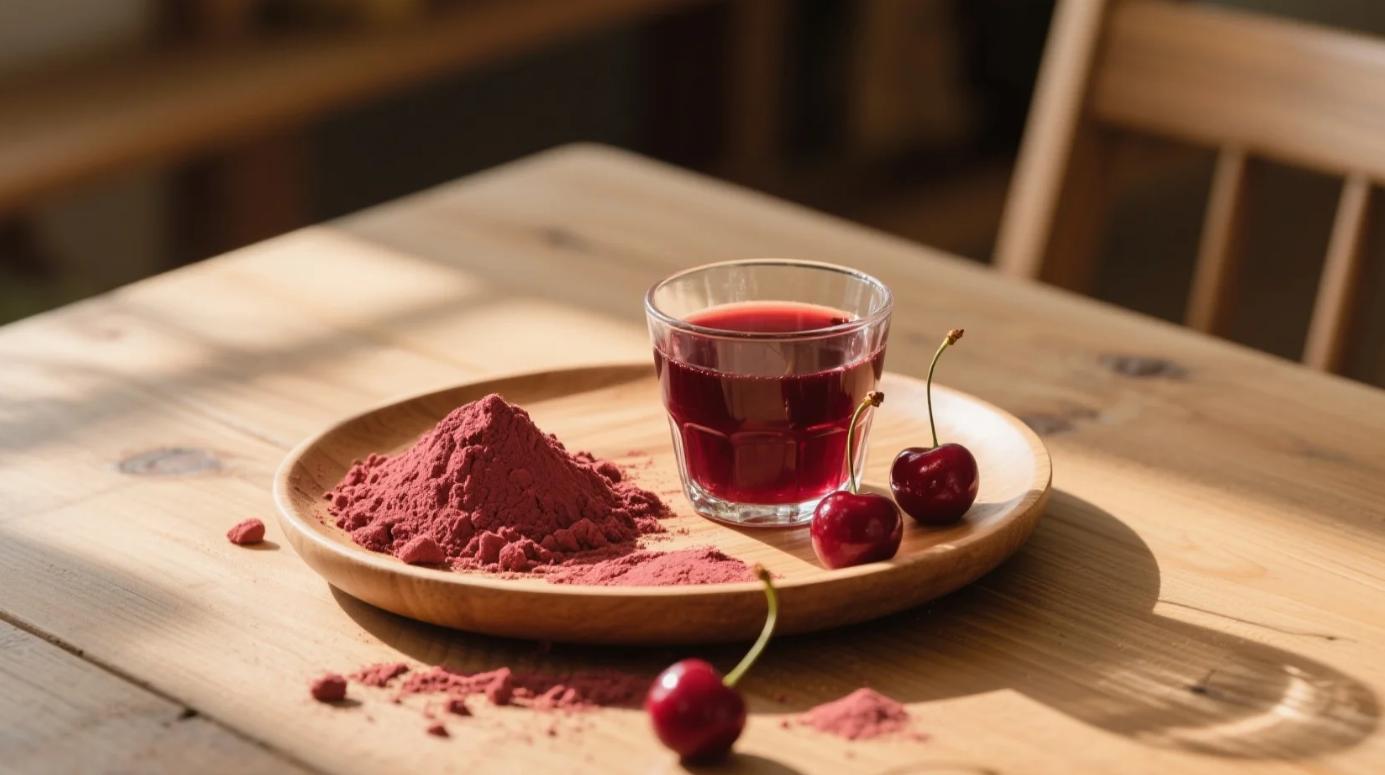Table of Contents
Ginger, the fiery root revered in Ayurveda and Traditional Chinese Medicine, is more than just a culinary spice. With organic ginger powder (made from dried whole ginger) and organic ginger extract powder (a concentrated form of gingerols) gaining traction, many wonder: Can this zesty superfood truly help manage blood pressure? Let’s dig into the research, compare forms, and reveal how to harness ginger’s benefits safely.
Ginger and Blood Pressure: What the Science Says
1. Vasodilation via Gingerols
Ginger’s active compound, gingerol, relaxes blood vessels by inhibiting angiotensin-converting enzyme (ACE), similar to some hypertension medications. A 2021 meta-analysis found daily ginger intake reduced systolic BP by 6–8 mmHg in prehypertensive adults.
2. Anti-Inflammatory Effects
Chronic inflammation stiffens arteries, raising BP. Ginger’s antioxidants lower CRP and IL-6 markers, improving vascular flexibility.
3. Sodium Balance
Potassium in organic ginger powder (415mg per 100g) counteracts sodium’s bloating effects, easing pressure on blood vessels.
4. Blood Thinning Properties
Ginger’s salicylates mildly thin blood, improving circulation but requiring caution for those on anticoagulants like warfarin.
Organic Ginger Powder vs. Extract Powder: Which Is Better for BP?
| Factor | Organic Ginger Powder | Organic Ginger Extract Powder |
|---|---|---|
| Gingerol Concentration | 3–5% gingerols | 10–20% gingerols (standardized) |
| Fiber Content | High (supports gut health) | Low (fiber removed during extraction) |
| Dosage for BP | 1–2 tsp daily (≈2–4g) | 100–300mg daily (≈⅛ tsp) |
| Best Use | Cooking, teas, long-term support | Targeted supplementation, quick absorption |
How to Use Ginger for Blood Pressure Support
- Morning Ritual: Steep 1 tsp organic ginger powder with lemon and honey in hot water.
- Smoothie Boost: Add ¼ tsp extract powder to a beetroot-carrot smoothie (synergistic for BP).
- Spice Blends: Mix powder into garlic-turmeric seasoning for heart-healthy meals.
- Capsule Alternative: For concentrated dosing, opt for extract powder in veggie capsules.
Who Should Proceed with Caution?
- Low BP Patients: Ginger may exacerbate hypotension. Monitor closely.
- Anticoagulant Users: Consult a doctor due to blood-thinning risks.
- Gallbladder Issues: High doses may trigger bile production.
Why Organic Ginger Matters for BP Management
Non-organic ginger often contains pesticide residues like chlorpyrifos, which are linked to hypertension. Certified organic ginger ensures:
✅ No synthetic pesticides or irradiation
✅ Higher gingerol content (organic soils boost phytochemicals by 15–30%)
✅ Sustainable farming (preserves soil health for nutrient-rich crops)
3 Clinical Takeaways
- Moderation Is Key: Excessive ginger (>4g extract daily) may irritate the stomach or lower BP too drastically.
- Synergy with Diet: Pair with potassium-rich foods (spinach, bananas) and reduce sodium.
- Patience Pays Off: BP improvements may take 8–12 weeks of consistent use.
FAQs
Q: Can ginger replace BP meds?
A: No! Use it as complementary support under medical guidance.
Q: Best time to take ginger for BP?
A: Morning or post-meal to avoid acid reflux.
Q: Safe during pregnancy?
A: Limit to 1g powder/day—high doses may stimulate contractions.
Q: How to store ginger powders?
A: Airtight container in cool, dark place (shelf life: 2 years).
Ready to Spice Up Your Heart Health?
Whether you’re sprinkling organic ginger powder into soups or blending extract powder into wellness shots, this ancient root offers modern-day solutions for blood pressure balance.
Embrace ginger’s zing—where tradition meets science, and every pinch pulses with vitality.
Recommended Product
Organic Ginger Powder
A pungent, aromatic, and health-promoting spice powder for diverse applications.


